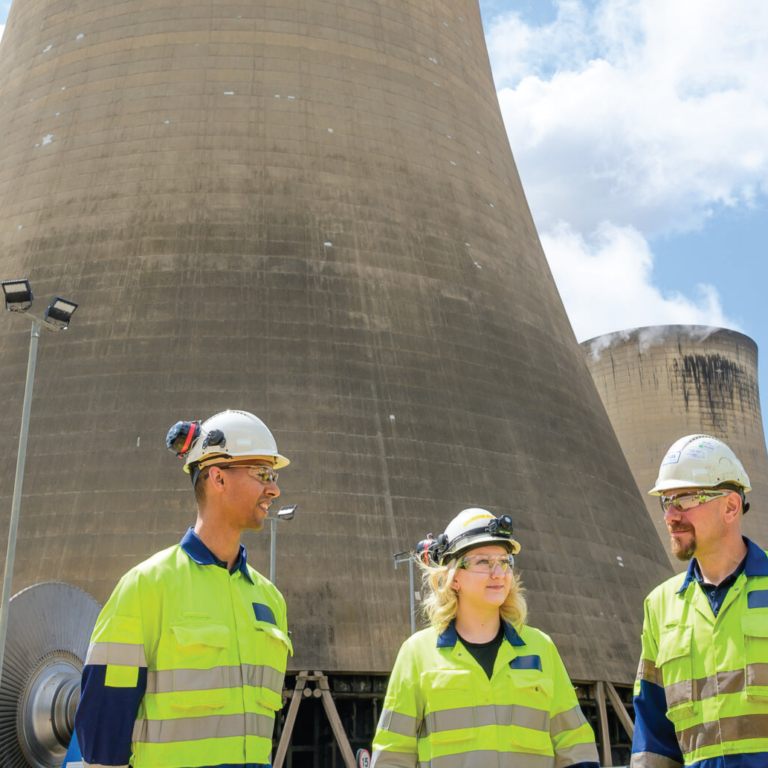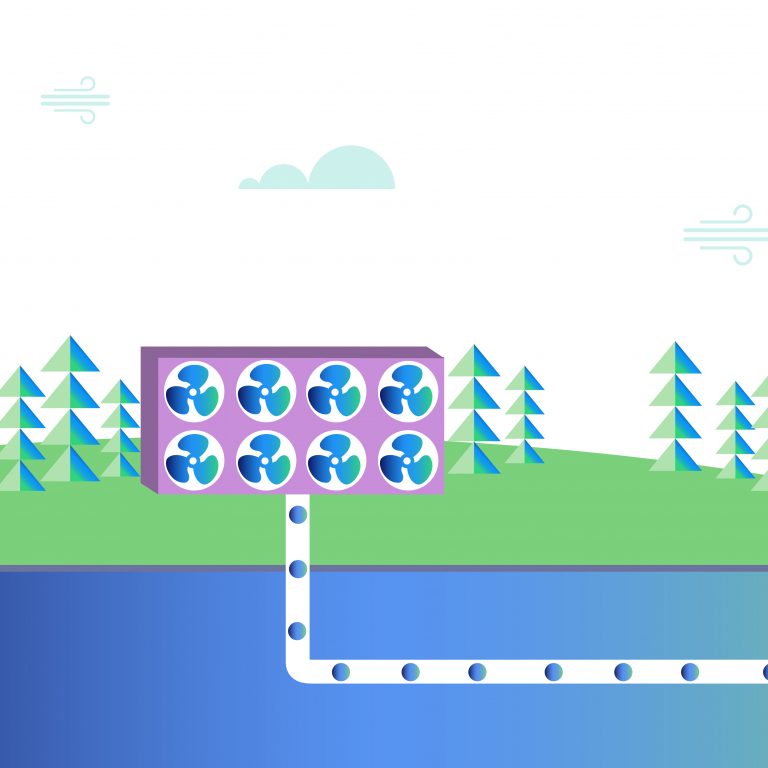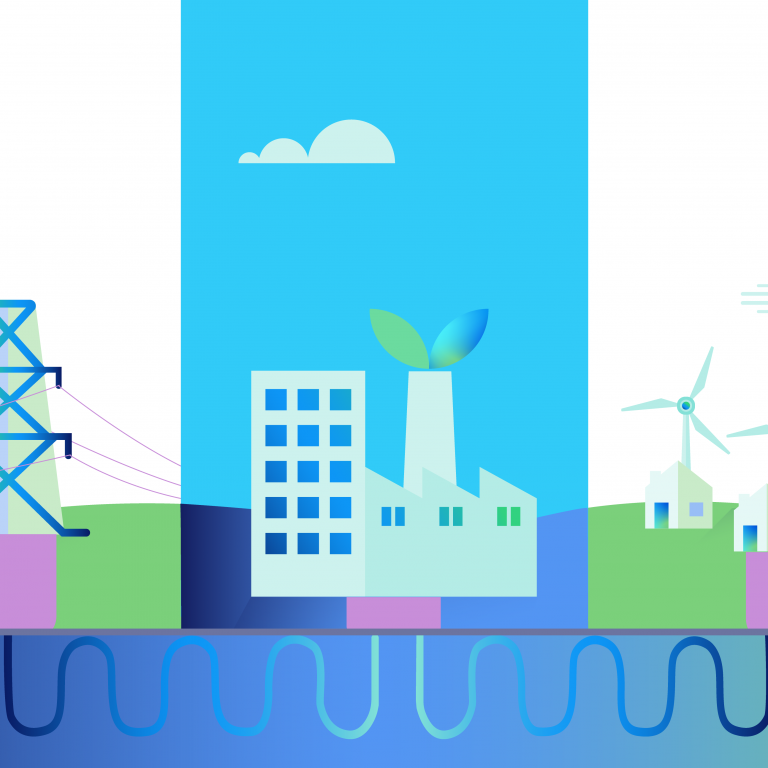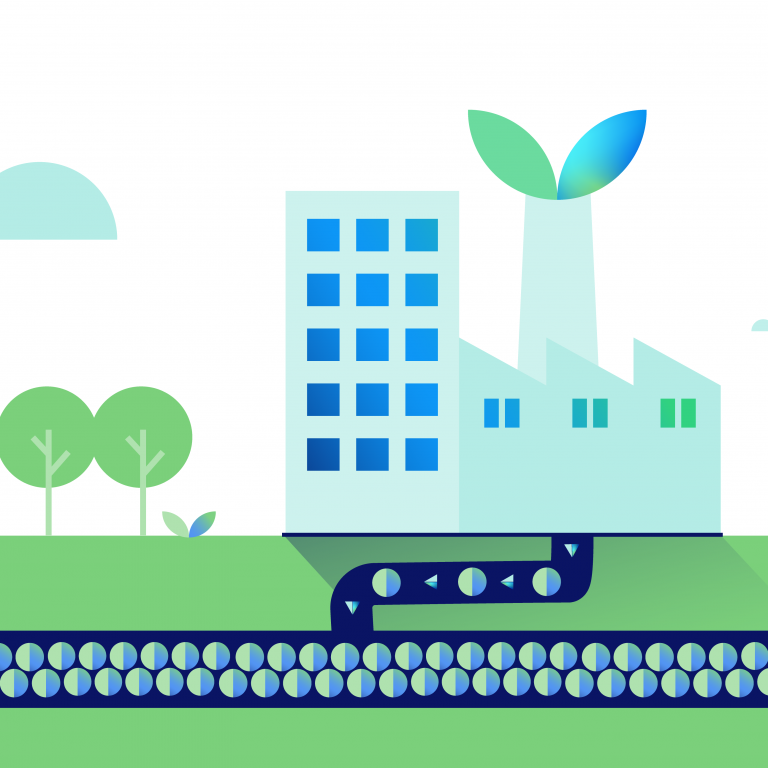What is decarbonisation?
Decarbonisation is the term used for the process of removing or reducing the carbon dioxide (CO2) output of a country’s economy. This is usually done by decreasing the amount of CO2 emitted across the active industries within that economy.
Why is decarbonisation important?
Currently, a wide range of sectors – industrial, residential and transport – run largely on fossil fuels, which means that their energy comes from the combustion of fuels like coal, oil or gas.
The CO2 emitted from using these fuels acts as a greenhouse gas, trapping in heat and contributing to global warming. By using alternative sources of energy, industries can reduce the amount of CO2 emitted into the atmosphere and can help to slow the effects of climate change.

Why target carbon dioxide?
There are numerous greenhouse gases that contribute to global warming, however CO2 is the most prevalent. As of 2018, carbon levels are the highest they’ve been in 800,000 years.
The Paris Agreement was created to hold nations accountable in their efforts to decrease carbon emissions, with the central goal of ensuring that temperatures don’t rise 2 degrees Celsius above pre-industrial level.
With 195 current signatories, economies have begun to factor in the need for less investment in carbon, with the UK leading the G20 nations in decarbonising its economy in the 21st century.
How is decarbonisation carried out?
There are numerous energy technologies that aim to reduce emissions from industries, as well as those that work towards reducing carbon emissions from the atmosphere.
Decarbonisation has had the most progress in electricity generation because of the growth of renewable sources of power, such as wind turbines, solar panels and coal-to-biomass upgrades, meaning that homes and businesses don’t have to rely on fossil fuels. Other innovations, such as using batteries and allowing homes to generate and share their own power, can also lead to higher rates of decarbonisation. As the electricity itself is made cleaner, it therefore assists electricity users themselves to become cleaner in the process.
Other approaches, such as reforestation or carbon capture and storage, help to pull existing carbon from the air, to neutralise carbon output, or in some cases, help to make electricity generation – and even entire nations – carbon negative.
Alternative power options means that homes and businesses don’t have to rely on traditional carbon fuels.
What is the future of decarbonisation?
For decarbonisation to be more widely adopted as a method for combating climate change, there needs to be structural economical change, according to Deloitte Access Economics. Creating more room for decarbonisation through investing in alternative energies means that “there are a multitude of job-rich, shovel-ready, stimulus opportunities that also unlock long-term value”.
Decarbonisation fast facts
- A study by Carbon Brief in 2019 found that the UK’s carbon emissions have decreased by 38% since 1990, which is faster than any other major developed nation
- The UK has committed to reach net zero carbon emissions by 2050 by enshrining this goal as law, and announcing a £3 billion investment in low carbon technologies in 2019
- Currently, heavy industry (cement, steel and chemicals) and heavy-duty transport (mainly shipping and aviation) account for 30% of CO2 emissions, worldwide
- Energy consumption over a large range of sectors – including transport, heating, construction, and production – is the biggest source of human-caused greenhouse gas emissions, providing 73% of global carbon output
- Iceland is the only nation to currently have 100% of its energy derived from natural sources, with 73% sourced from hydropower, and 27% coming from geothermal power
Go deeper
- 4 charts explain greenhouse gas emissions by countries and sectors
- 3 ways decarbonisation could change the world
- Maintaining electricity grid stability during rapid decarbonisation
- Slow burn? The long road to a zero emissions UK
- Drax to stop using coal well ahead of UK’s deadline
- Net zero: the UK’s contribution to stopping global warming
- Progress, impacts and outlook for transforming Britain’s energy system





















